In today’s rapidly evolving world, the industrial machinery sector plays a crucial role in driving economic growth and technological advancements. From manufacturing plants to construction sites, industrial machinery powers various industries and enables efficient and productive operations. As we look ahead, it’s essential to explore the future of industrial machinery, uncovering the trends and innovations that will shape its landscape. In this article, we will delve into the exciting developments and advancements that are set to revolutionize the industrial machinery sector. So, fasten your seatbelts and get ready to embark on a thrilling journey into the future of industrial machinery!
İçindekiler Tablosu
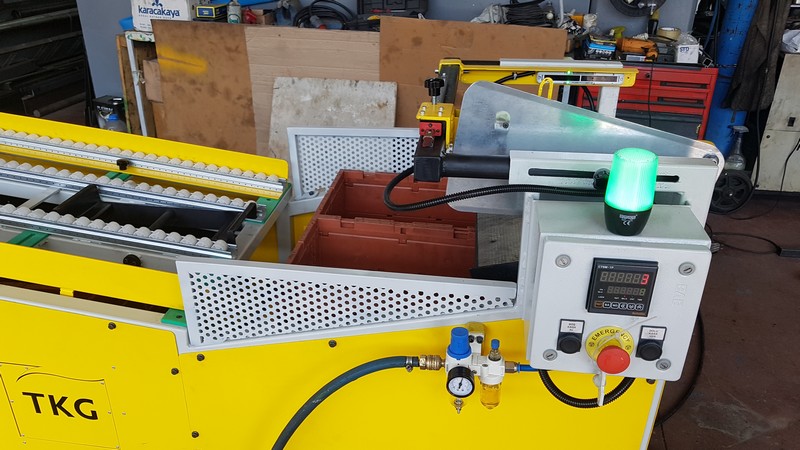
The Future of Industrial Machinery: Trends and Innovations to Watch
As technology continues to advance at an unprecedented pace, the future of industrial machinery holds immense potential for innovation and transformation. Here, we highlight the key trends and innovations that are poised to redefine the industrial machinery landscape:
1. IoT Integration: Connecting the Unconnected
The Internet of Things (IoT) has already made significant inroads into various industries, and the industrial machinery sector is no exception. By integrating IoT technology into machinery and equipment, manufacturers can enable real-time data monitoring, predictive maintenance, and remote operation capabilities. IoT integration allows for seamless connectivity and communication between machines, leading to enhanced productivity, reduced downtime, and optimized resource utilization.
2. Artificial Intelligence (AI): Powering Efficiency and Automation
Artificial Intelligence (AI) is set to revolutionize the industrial machinery sector by enabling advanced automation and intelligent decision-making. AI algorithms can analyze vast amounts of data, identify patterns, and make data-driven predictions. This technology can optimize manufacturing processes, improve product quality, and streamline supply chain management. With AI-powered machinery, manufacturers can achieve higher levels of efficiency, precision, and productivity.
3. Robotics: From Assistants to Collaborators
Robots have long been an integral part of industrial machinery, performing repetitive tasks with speed and precision. However, the future holds even greater promise for robotics in the industrial sector. Collaborative robots, also known as cobots, are emerging as valuable partners to human workers. These robots can work alongside humans, assisting in complex tasks that require dexterity and agility. Cobots offer increased safety, flexibility, and efficiency, making them ideal for a wide range of industrial applications.
4. Additive Manufacturing: Shaping the Future of Production
Additive Manufacturing, or 3D printing, is revolutionizing traditional manufacturing processes. This technology allows for the creation of complex and customized parts with reduced material waste and faster production times. With additive manufacturing, manufacturers can achieve greater design freedom, rapid prototyping, and on-demand production. As the technology continues to advance, we can expect additive manufacturing to become more prevalent across industries, disrupting traditional supply chains and enabling localized production.
5. Augmented Reality (AR): Enhancing Training and Maintenance
Augmented Reality (AR) is poised to transform the way industrial machinery is maintained and operated. By overlaying digital information onto the physical environment, AR technology can provide real-time guidance and training to technicians. AR-powered maintenance systems can display step-by-step instructions, highlight faulty components, and even offer remote assistance. This technology enhances troubleshooting, reduces downtime, and improves overall equipment effectiveness.
6. Big Data Analytics: Unleashing the Power of Data
In the era of Industry 4.0, data has become a valuable asset for industrial machinery manufacturers. Big Data Analytics allows manufacturers to extract meaningful insights from the vast amount of data generated by machinery and equipment. By analyzing this data, manufacturers can identify patterns, optimize performance, predict maintenance needs, and make informed decisions. Big Data Analytics empowers manufacturers to maximize productivity, minimize costs, and enhance overall equipment efficiency.
FAQs
- Q: How will IoT integration benefit the industrial machinery sector?
- A: IoT integration enables real-time data monitoring, predictive maintenance, and remote operation capabilities, leading to enhanced productivity, reduced downtime, and optimized resource utilization in the industrial machinery sector.
- Q: What are the advantages of AI in industrial machinery?
- A: AI in industrial machinery powers efficiency and automation, optimizing manufacturing processes, improving product quality, and streamlining supply chain management. It enables higher levels of efficiency, precision, and productivity.
- Q: What are collaborative robots, and how do they benefit industrial applications?
- A: Collaborative robots, or cobots, work alongside humans, assisting in complex tasks that require dexterity and agility. They offer increased safety, flexibility, and efficiency, making them ideal for a wide range of industrial applications.
- Q: How does additive manufacturing revolutionize traditional production processes?
- A: Additive manufacturing, or 3D printing, enables the creation of complex and customized parts with reduced material waste and faster production times. It disrupts traditional supply chains and enables localized production.
- Q: What are the benefits of augmented reality in the industrial machinery sector?
- A: Augmented reality enhances training and maintenance processes by providing real-time guidance, step-by-step instructions, and remote assistance. It improves troubleshooting, reduces downtime, and enhances overall equipment effectiveness.
- Q: How can big data analytics empower industrial machinery manufacturers?
- A: Big data analytics allows manufacturers to extract meaningful insights from machinery data, enabling performance optimization, predictive maintenance, and informed decision-making. It maximizes productivity, minimizes costs, and enhances overall equipment efficiency.
Conclusion
The future of industrial machinery is brimming with exciting trends and innovations that will shape the way industries operate and thrive. From IoT integration and artificial intelligence to robotics, additive manufacturing, augmented reality, and big data analytics, each development brings new opportunities for increased productivity, efficiency, and sustainability. As manufacturers embrace these advancements, they will unlock the full potential of industrial machinery, driving economic growth and pushing the boundaries of what is possible. So, gear up for the future of industrial machinery and be prepared to witness groundbreaking transformations in the world of manufacturing and beyond!

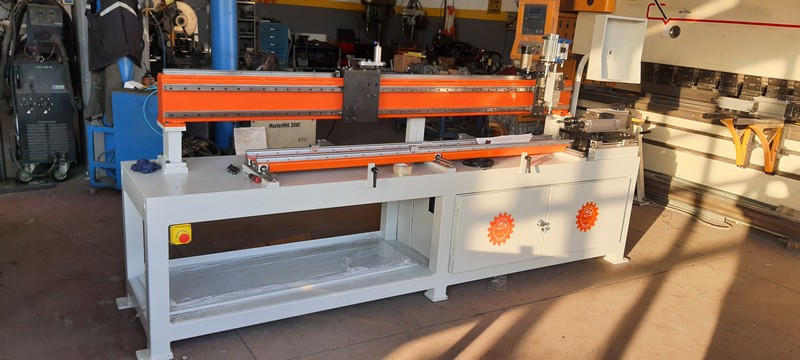
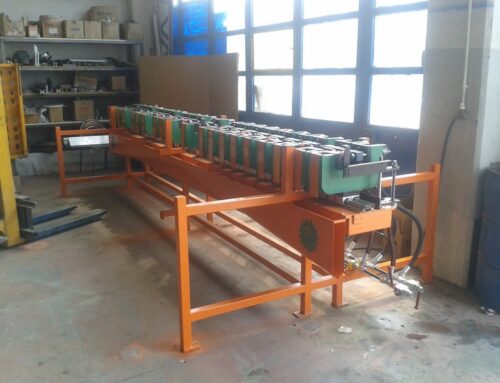
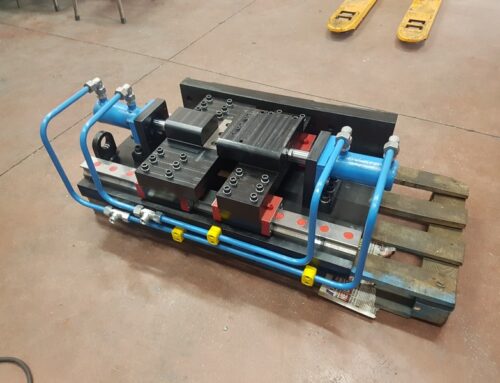
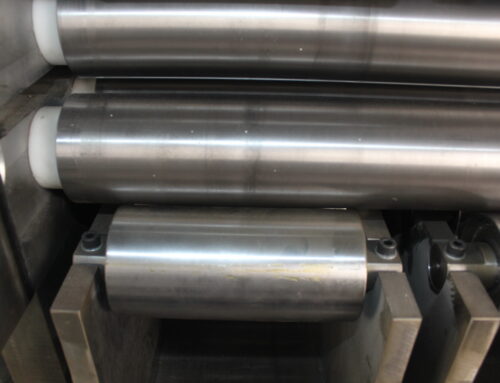
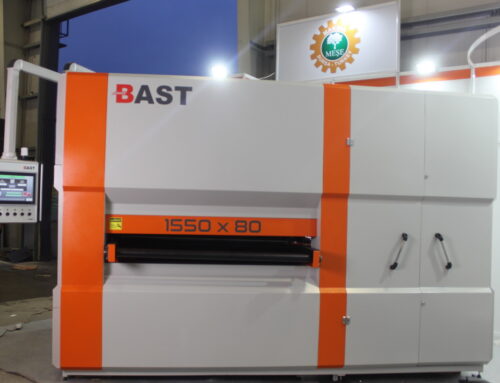

Leave A Comment